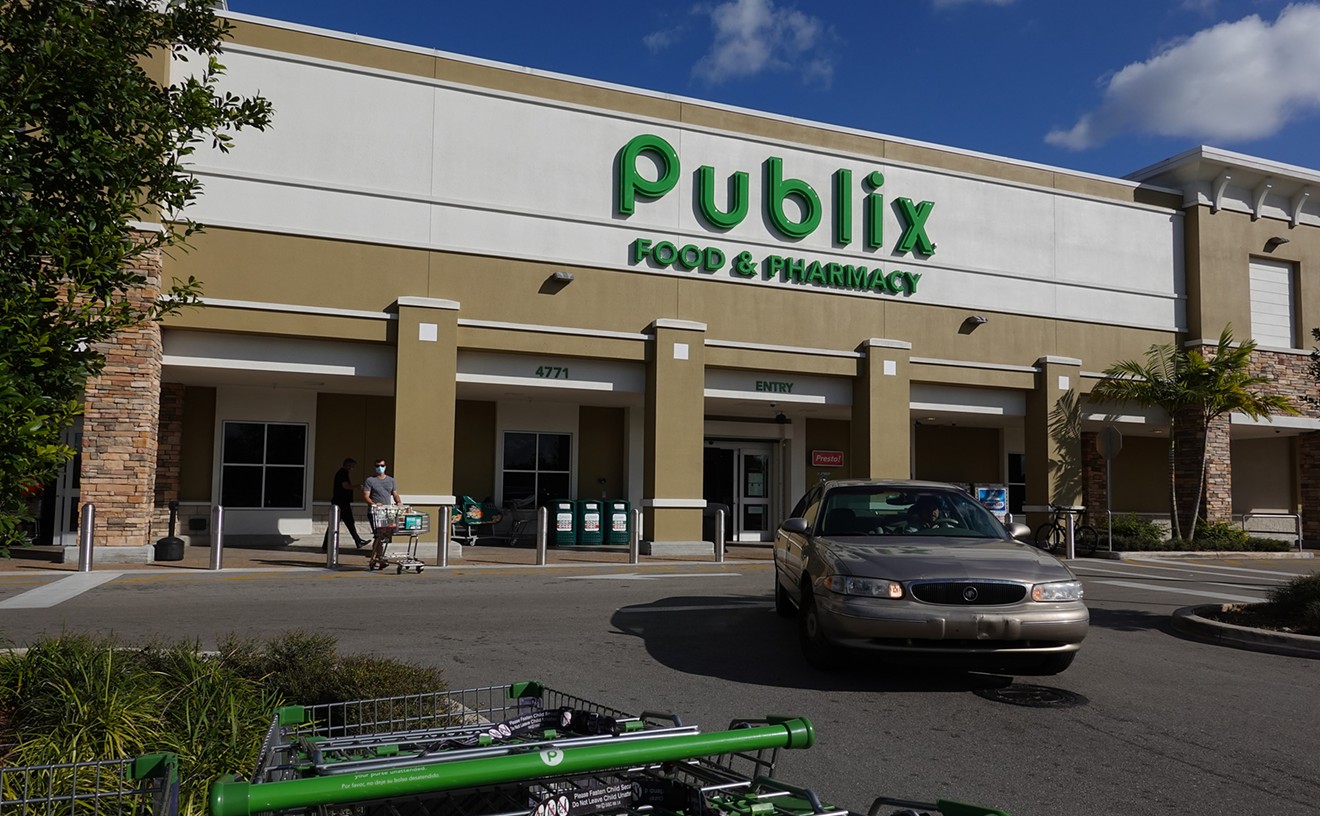Have you ever visited a Miami supermarket in a rush? You might know how frustrating it is to see those confused shoppers, causing all sorts of traffic jams with their shopping carts as they meticulously read the labels on bottles of olive oil. Chances are several will be slowly inspected before a final choice is made. Of course, this all happens while you stand patiently a few carts behind, deciding whether to turn around or wait it out.
Maybe it's because of the high cost of the aromatic oil or perhaps it's that there are are so many varieties, but Miami shoppers seem intimidated. So I lookout. On a recent pizza night, I spotted a couple of bottles of Lucini olive oil sitting atop a counter at Michael Schwartz's Harry's Pizzeria. Schwartz clearly loves Lucini and you can even read up on it on The Genuine Kitchen's blog.
So, in the hopes of expediting my supermarket runs and spreading a little knowledge about the magical powers of an excellent olive oil, I sought out advice from Renée Frigo Graeff, founder and CEO of Lucini, a company based in Miami that produces and harvests olive oil from Italy.
So what's Renée's first tip of advice to hopeful shoppers? "Read the label", she says. The best olive oil is extra virgin, which means that the acidity level must be less than .08 percent. This low percentage ensures the highest concentration of flavors and aromas. Many companies fulfill this requirement by just reaching the required percentage, but better olive oils go above and beyond. Lucini is less than half of the acidity required to make the cut (the last harvest was .0225 percent) and many other high quality brands do the same.
A few labels will say first cold pressed or cold pressed, which basically means that the olives are crushed only once to release their oil, and they are not heated or refined. Extra virgin olive oil's low acidity is achieved through the first cold press. Only lesser grade oils are produced by over-heating and re-pressing.
Once you have that covered, you better bust out your glasses. Renée stresses that you should ask yourself, "How is the oil harvested? Where is it from?". Even if an olive oil says "Product of Italy," this doesn't mean that the olives were grown and harvested in Italy. Labeling regulations allow companies to print "Product of Italy" if the olives are only pressed and bottled in the country. But the olives may actually be from somewhere else. So, if you are looking for a pure blend oil, whether it's from Spain, Greece, California or anywhere else, make sure the label says harvested and bottled in that location.
You should also look past the label and consider the size of the bottle. For best flavor, olive oil should be consumed within four to six weeks from opening. Unless you are planning to make a lot of focaccia, don't buy a huge bottle. Grab a size that you will realistically consume during this time period.
Don't grab the brand at the supermarket that has dust on it. Olive oil should be consumed within 12 to 18 months of bottling. Check to see if the bottling date is printed. Look for brands that have a high turn around rate and aren't just sitting there on the shelf for years.
>You might have heard that excellent olive oil must come in a dark bottle. But a dark bottle doesn't necessarily signal better quality. Renée says, "A dark bottle does protect the oil from ultraviolet light, which over time (three months of continuous exposure) can diminish it's flavor and color." She explains further, "Lucini does not use a dark glass bottle because consumers for a premium product want to see what they're getting." Since olive oil should be kept in a cupboard, away from the light, at room temperature, it's unnecessary to only opt for dark-bottled olive oil. Some great olive oils come in clear bottles and some mediocre olive oils come in dark bottles.
Another important concern for shoppers is whether to splurge on pricier organic olive oil. Lucini offers both conventional and organic varieties, and Renée notes there are slight differences in complexity and aroma. She explains, "This is due [to the] two different areas of cultivation in Tuscany. The organic is produced on a single estate in the hills near Florence and the Lucini Premium Select is produced in the hills near Bolgheri on the Tuscan Coast." Both organic and conventional olive oils for Lucini are harvested with the same method and they are crushed within hours of picking. Basically, as is the same for cream for butter, the different estates produce different oils because of the nuisances of the soil and environment. ;But the best quality olive oil usually comes from producers that care about the environment and don't use harsh pesticides which can permeate the olive and alter its delicate flavor, even in their conventional products.
The best tip is to just get out there, push your way through all those shopping carts and try different bottles from varying countries of origin. Pick the one that suits your taste buds. Start by discarding options that are out of your price range and then slowly go sampling out the best. Try the olive oil raw first, dipped in bread or topping a salad. Then, move on to a cooked preparation. Try prepping your favorite pasta recipe with your new acquisition and see how it changes the dish. But, most importantly, if you're already at the grocery store in that middle aisle, make it quick. Or I might just step out from behind the shelves and make the choice for you.
Follow Short Order on Facebook and Twitter @Short_Order.









